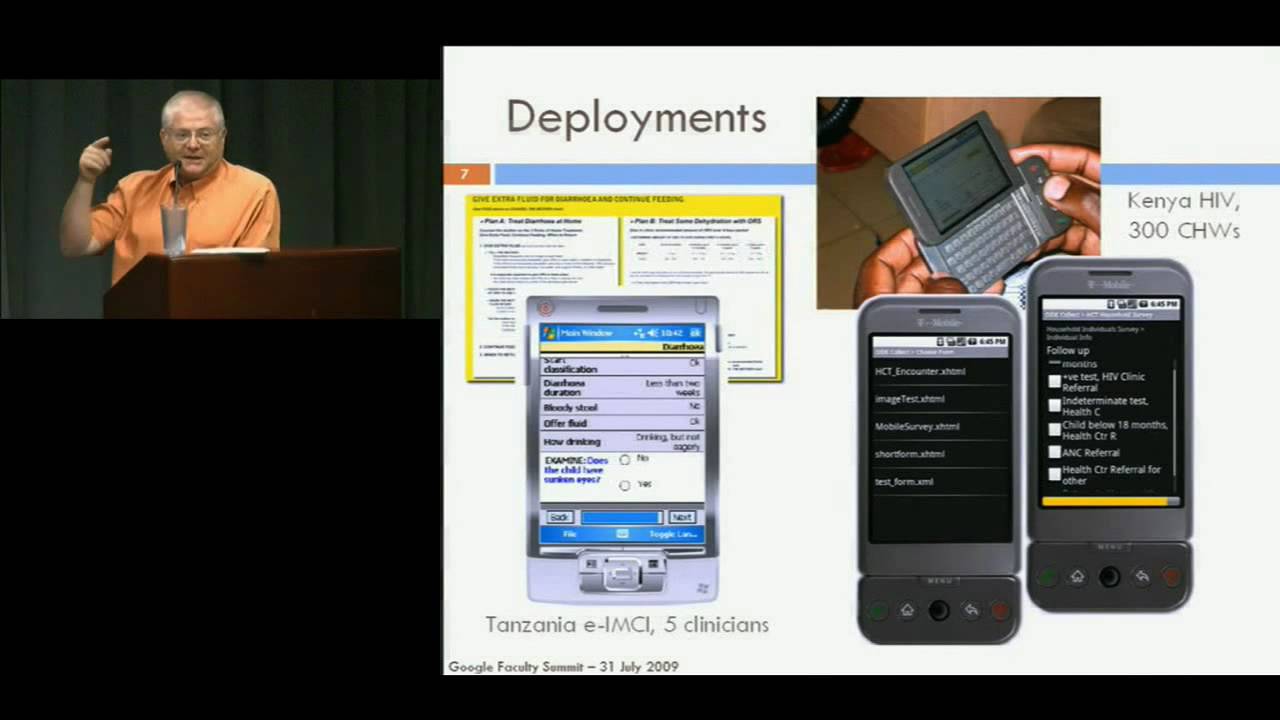good set of questions, emily.
language support.
there are three levels of language support -- in the android operating
system itself, in the odk collect application, and in the form you are
using.
for android, you only have the popular languages available -- chinese,
dutch, english, french, japanese, etc (see
http://developer.android.com/sdk/android-2.2.html#locs for the full
list). pretty hard to add to that list and this is what controls the
language of the phone itself with no applications.
for odk collect, we currently have english, swahili, french, spanish,
and chinese translations. if you want to translate into more
languages, it's very easy to add more and this is what controls what
the buttons and dialog messages in odk collect say.
for the form, you can support any language that can be encoded as
unicode. you can translate individual questions or the entire form.
you toggle languages at any point in the survey. see
http://www.youtube.com/watch?v=lo8LaFFSkV8 (at 1:34). there is a catch
in that android has to have the font to display the script. i'm pretty
sure you should be fine, but if you have some sample text, i can try
it out for you.
timeline
neil and sam can speak on this a bit more, but with the community's
help and an understanding of xml, it shouldn't take you more than a
few hours to get a grasp of how to work with odk -- particularly the
format of the forms and workflow. if you have a more complex form with
logic, then it depends on how clever you are :). folks who have been
exposed to programming tend to grasp these things (loops, variable
assignment, etc.) much faster than civilians. we have sample forms at
http://code.google.com/p/opendatakit/source/browse?repo=forms.
privacy
you can have two forms per household. form 1 would have the gps
coordinates, photo and the household key, form 2 would have the
household key and the other data. results from both forms would have
to be stored on the sdcard of the phone, but in separate plaintext
files. once you send the files to the server or local machine, you can
delete them off the phone. there are countless ways to you can make
this process more secure (separate servers per form, encryption of the
sd card, etc) -- just depends what you consider secure and are willing
to build...
qa/qc
you can add time stamps at any point of the survey. you can even put
hidden location coordinates on each question if you so choose. neil
and sam can talk about quality control, but a lot of this is in how
you design the survey. limiting free text and using the logic to check
for ranges, etc.
hope that helps. keep the questions coming!
···
On Tue, May 25, 2010 at 15:13, Emily Kumpel wrote:
> Hi ODK implementers,
> I am from a team of a graduate students who are planning a large survey
> (over 10,000 surveys in the course of a year) in southern India. We're still
> deciding whether to use ODK and I have a few questions that hopefully those
> with experience implementing this can help us out with.
> - Language support. We'll have the survey prepared in 4 languages (Kannada
> mainly, but also Hindi, Urdu, and English). I'm assuming script-based
> fonts, including Kannada (since it's supported by google) should be easy.
> Has anyone had experience using script-based languages on ODK, and also
> with switching through multiple languages when going from survey household
> to survey household? Is this easy to do or were there any challenges with
> it?
> - Timeline. We're 3 PhD students on a very limited budget who are pretty
> solid at overall surveying process (piloting, training, etc), but only one
> of has some programming experience (with all 3 willing to learn). How long,
> realistically, would it take us to do just the ODK part of the survey setup
> (assuming our survey itself is finished/piloted/field issues worked
> out/etc), including learning the systems, learning XForms/JavaRosa, learning
> how to making changes, inputting our survey, etc?
> - Privacy. How can we use ODKCollect in a manner that ensures privacy of
> the data? In a paper-based system we'd be using a numeric key to identify
> households and not have any identifying information attached to the data
> itself, and the surveys would be kept in a locked cabine, etc.. What would
> be the equivalent procedure for using ODK collect? Also, we'd like to be
> able to mark houses with GPS information and photos for easy recognition
> since we'll have a survey team re-visiting the same households; however, to
> protect privacy of households we'll need to keep GPS coordinates separate
> from the data itself (ie marked by a key kept securely elsewhere). Has
> anyone had experience with this and recommendations for ensuring security of
> the data?
> - QA/QC. Is there the ability to time how long it takes for an enumerator
> to get through certain questions or parts of the survey as a means of
> quality control on the data collection/entry process? Or what other methods
> have implementers used to ensure quality of data collection?
> Thanks!
> Emily
>
>
>
>
>
>
>
